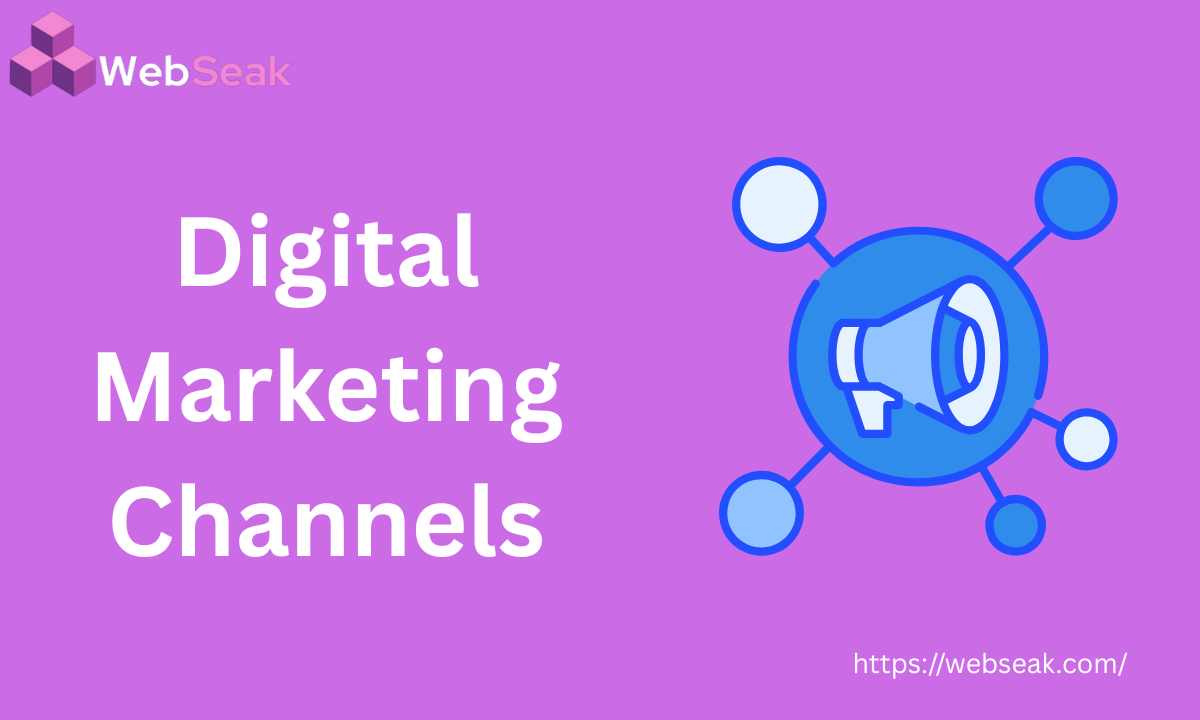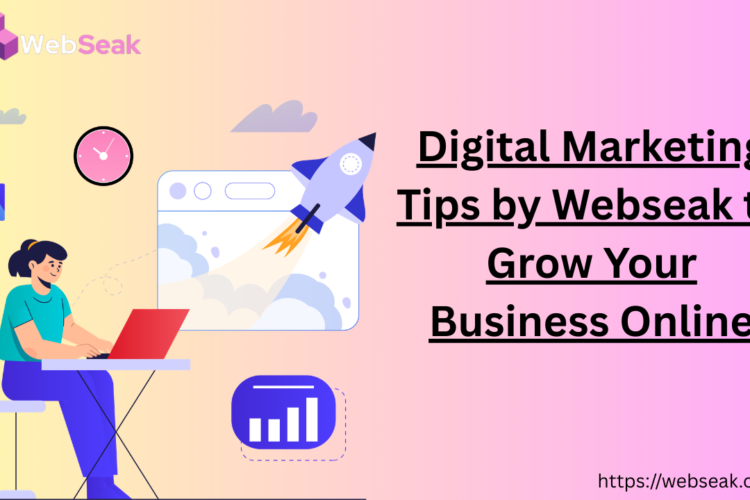
Introduction
Digital marketing channels are the platforms and methods businesses use to reach customers online. At Webseak we believe that choosing the right channels is the foundation of every successful digital strategy. From search engines and social media to email and paid advertising, each channel plays a unique role in building visibility, generating leads, and driving sales.
In this article, we will explain what digital marketing channels are, why they matter, the most important types, their benefits, and how businesses can select the right mix to maximize results.
Table of Contents
What are Digital Marketing Channels ?
Digital marketing channels are the tools and pathways businesses use to connect with potential customers in the digital space. They allow brands to share content, promote products, and communicate with audiences at different stages of the customer journey.
Unlike traditional marketing channels such as television or print, digital channels are interactive, measurable, and highly targeted.
Importance of Digital Marketing Channels
Understanding digital marketing channels is essential because they determine how effectively a business can reach and engage its audience. Without using the right channels, even the best products may remain invisible to potential buyers.
Some reasons why digital marketing channels are important include:
- Visibility: They make it possible for businesses to appear where customers spend most of their time online.
- Targeting: Channels allow precise segmentation by demographics, interests, and behaviors.
- Measurability: Every interaction can be tracked and analyzed.
- Cost efficiency: Digital channels are often more affordable compared to traditional methods.
- Flexibility: Businesses can adjust strategies quickly based on performance.
Major Types of Digital Marketing Channels
There are several types of digital marketing channels, each with unique strengths.
1. Search Engine Optimization SEO
SEO focuses on improving website visibility in search results. By optimizing content and structure, businesses can attract organic traffic without paying for ads.
2. Pay Per Click Advertising PPC
PPC involves paying for ads on platforms like Google Ads or Bing Ads. It offers instant visibility and works well for targeting specific keywords and audiences.
3. Social Media Marketing
Platforms like Facebook, Instagram, LinkedIn, and TikTok are powerful channels for building communities, promoting products, and engaging with customers.
4. Content Marketing
This channel focuses on creating valuable resources such as blogs, videos, and infographics that inform, educate, and attract audiences.
5. Email Marketing
Sending personalized emails helps nurture leads, promote offers, and maintain long term customer relationships.
6. Affiliate Marketing
Businesses collaborate with affiliates who promote their products in exchange for a commission on sales.
7. Influencer Marketing
Partnering with influencers helps brands tap into loyal audiences that trust their recommendations.
8. Display Advertising
Visual ads placed on websites help increase brand awareness and retarget visitors who showed interest earlier.
9. Mobile Marketing
Strategies such as SMS campaigns, app marketing, and mobile optimized websites help reach users on smartphones.
Benefits of Using Multiple Digital Marketing Channels
Relying on one channel may limit growth. Businesses that combine different digital marketing channels achieve better results.
1. Wider Reach
Different channels attract different segments of the audience, expanding overall visibility.
2. Improved Engagement
Some channels are better for awareness, while others focus on conversions, creating a balanced strategy.
3. Consistency Across Platforms
Using multiple channels ensures the brand message is reinforced everywhere customers interact.
4. Higher ROI
Diversification allows businesses to test which channels deliver the best results and allocate budgets accordingly.
5. Better Customer Experience
Customers can engage with the brand on their preferred platforms, leading to higher satisfaction.
Challenges of Managing Digital Marketing Channels
While digital channels are powerful, businesses may face challenges such as:
- Keeping up with constant algorithm changes.
- Creating enough content to stay active across multiple platforms.
- Managing budgets efficiently between paid and organic efforts.
- Measuring results across different customer touchpoints.
- Staying consistent in brand messaging.
Working with an experienced agency like Webseak helps overcome these challenges through structured planning and data driven decisions.
How to Choose the Right Digital Marketing Channels ?
At Webseak we recommend businesses evaluate the following when selecting channels:
- Business goals: Choose channels that align with whether the focus is awareness, leads, or sales.
- Target audience: Identify where customers spend their time online.
- Budget: Balance between cost effective organic strategies and paid campaigns.
- Competition: Analyze which channels competitors are using successfully.
- Resources: Ensure you have the team and tools to manage selected channels effectively.
Examples of Digital Marketing Channels in Action
Here are practical examples of how businesses use digital marketing channels:
- An ecommerce store increases sales by combining SEO optimized product pages with PPC ads.
- A local restaurant drives foot traffic with social media campaigns and Google Maps optimization.
- A startup builds brand authority through blogs and video content marketing.
- A fitness brand partners with influencers to expand its reach on Instagram and TikTok.
- A SaaS company nurtures leads through email marketing and remarketing campaigns.
Future of Digital Marketing Channels
The future of digital marketing channels is shaped by rapid technological changes. Artificial intelligence, voice search, virtual reality, and personalized experiences are becoming key elements of online marketing. Businesses that adopt these innovations early will be able to connect with audiences more effectively and stay competitive.
Conclusion
Digital marketing channels are the essential tools that connect businesses with customers in the online space. From SEO and PPC to social media and email marketing, each channel contributes to visibility, engagement, and conversions.
At Webseak we believe that the key to success is not choosing just one channel but creating a balanced strategy that uses the strengths of each. With the right combination of channels, businesses can build strong online brands, generate consistent growth, and achieve long term success in the digital marketplace.


